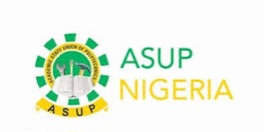10 Top Foreign Universities That Welcome 2.2 Graduates for MSc Programs
10 Top Foreign Universities That Accept Second-Class Lower (2.2) Degrees for Master’s in Science
Many graduates with a second-class lower (2.2) think a Master’s abroad is out of reach. That’s not always true. According to a new list compiled by The Nation, several reputable universities in the UK, Germany, and Canada consider applicants with a 2.2 for Master’s in Science programs, especially when backed by relevant experience, strong references, or a compelling personal statement. The Nation Newspaper
The report highlights Memorial University of Newfoundland and Carleton University in Canada as options that look at an applicant’s full profile. Admissions in Canada are often case-by-case, so having clear research interests, a tidy transcript, and good referee letters can help. This is encouraging for Nigerian graduates who want quality postgraduate training without being locked out by grade classifications alone. The Nation Newspaper
In the United Kingdom, universities such as Sunderland, Northumbria, UCLan (University of Central Lancashire), Westminster, and Coventry were listed as schools that accept a 2.2 for some MSc tracks. UK institutions usually publish program-specific requirements, so it’s smart to check each course page to confirm whether work experience, portfolio, or prerequisite modules are needed. If your degree is related and your statement of purpose is focused, your chances improve. The Nation Newspaper
Germany also features on the list, with RWTH Aachen, TU Berlin, and Hamburg University of Technology mentioned as institutions that may consider 2.2 holders, especially when applicants show relevant background or industry experience. Germany’s public universities tend to be competitive, and some programs are taught in English, while others require German. Make sure you review language requirements early and prepare proof of proficiency where necessary. The Nation Newspaper
For any applicant with a 2.2 aiming for a Master’s in Science, the key is to present a strong overall profile. That means a clear motivation for the course, evidence of skills through internships, projects, or certifications, and practical achievements that show you can handle graduate-level work. If your CGPA isn’t high, you can balance it with results on standardized tests (where accepted), published work, hackathon wins, or proof of industry contributions. Admissions teams value readiness and fit.
It also helps to contact course administrators with concise questions about eligibility. Ask if they accept a 2.2 for your specific program, and whether extra materials, like a portfolio, coding repository, research proposal, or GRE, would strengthen your file. This is a practical step that can save time and focus your applications on programs that truly match your profile.
Funding is another important point. Some of these universities offer scholarships or assistantships, but deadlines can be early. Start by listing programs you qualify for, then map out scholarship timelines, required documents, and references. Keep your CV simple and quantifiable: list tools, methods, and the impact of your work. Use your statement of purpose to connect your past experience to the course content and your future plans.
Finally, always verify requirements on the official program pages before you apply. Lists like this are helpful for direction, but universities can update rules and entry standards from time to time. Treat the list as a guide, then confirm the details on each department’s website so you submit a complete and accurate application. The good news is that a 2.2 does not automatically block your path. With the right strategy, you can still access strong MSc programs abroad and build a career in science and technology. The Nation Newspaper




